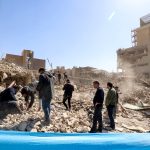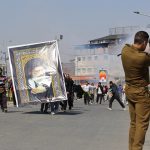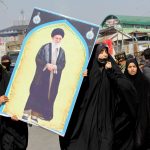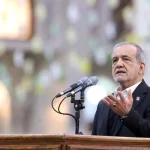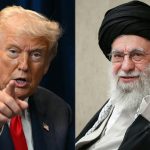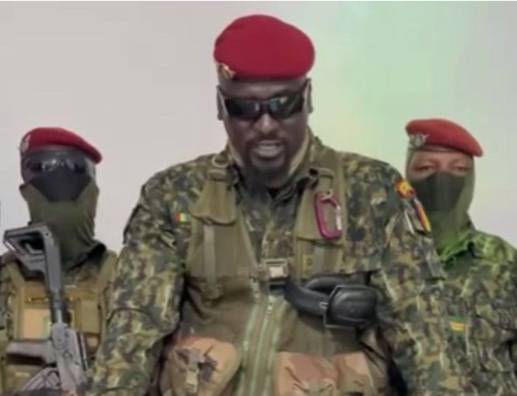
West Africa bloc, Economic Community of West African States (ECOWAS), stated Wednesday 8th-September-2021, that it had made a decision to suspend Guinea following the military coup in the country. The revelations followed an emergency summit held Wednesday, where leaders from the 15-nation bloc met to discuss the turmoil in Guinea, and called for “an immediate return to constitutional order.” The suspension means that Guinea has been struck out from all ECOWAS decision-making bodies with immediate effect. The bloc additionally says it will dispatch a high-level mission immediately.
“The Authority will review the situation in light of developments in the Republic of Guinea and the Assessment mission report,” it said.
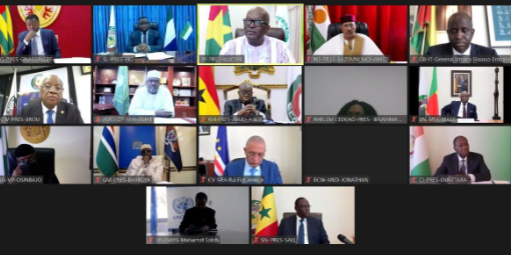
In its communication, ECOWAS also demanded that Guinea’s military release the country’s President Alpha Conde whom it is holding. A video emerged hours into the
takeover on Sunday that showed President Conde in a room surrounded by Special Forces soldiers. Members of the military who called themselves the National Rally
and Development Committee (CNRD) later issued a statement saying 83-year-old Conde was not harmed and was in contact with his doctors.
What potentially led to the coup?
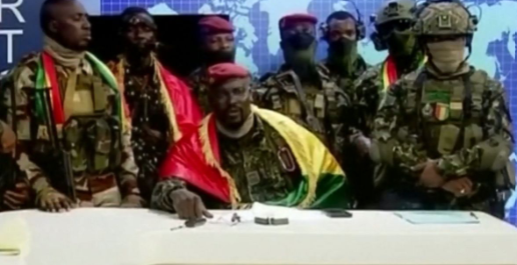
The seizing of power by the Special Forces last Sunday was led by Lieutenant Colonel Mamady Doumbouya, who hours after taking power in the capital Conakry, appeared on television and accused the president’s government of “endemic corruption” and of “trampling on citizens’ rights”. A look at recent events in the country, public discontent was reportedly growing in Guinea over the current state of the economy and the leadership of Conde, who became the first democratically elected president in 2010 and also re-elected in 2015.
Conde is said to have pushed through a new constitution that his critics said was meant to allow him to run for a third term in October 2020. However to back his support for a new constitution, Conde had argued that the country’s colonial-era laws needed to be changed to modernize the country, but his critics stood convinced that he planned to use the reform to stay in office beyond the two presidential terms that were stipulated by the constitution at the time. The move to introduce a new constitution that allowed Conde to bypass a two-term limit for presidents sparked mass demonstrations in which dozens of protesters were killed. Despite the demonstrations, Conde did extend his constitutional mandate upon being announced winner in last October’s election, that the political opposition maintained was a sham.
Pressure has continued to mount on Conde from the opposition for perceived authoritarianism, with calls for the release of dozens of opposition activists who were arrested after the disputed election last year. On Tuesday, days after the take-over on Sunday, Guinea’s military leaders freed at least 80 political prisoners that were allegedly detained by Conde. Some are said to have campaigned against his attempt to stay in power for a third term after altering the constitution to permit it.
Reactions to the recent coup
The coup leader, Lieutenant Colonel Mamady Doumbouya, has pledged to open talks on forming a new government, but it is not yet clear when, or under what form, these may take place. Doumbouya in a tweet on Tuesday said:
“The government to be installed will be that of national unity and will ensure this political transition…”
His pledge for open talks has not proved sufficient for the regional and international community that has so far condemned the coup. The coup has triggered broad diplomatic condemnation, including from the African Union, European Union and the United States.
What surprised many is that the coup was on Sunday met with jubilation in some parts of Conakry, where hundreds of residents turned out on the streets to applaud passing soldiers. Cellou Dalein Diallo, the country’s main opposition leader, also reportedly backed the military regime, although he called for the army to uphold the rule of law.
The man behind the coup
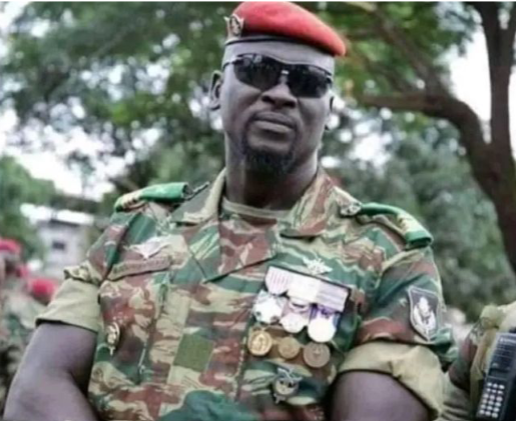
Lieutenant Colonel Mamady Doumbouya, is a Malinke from the Kankan border region near Côte d’Ivoire and Mali. Doumbouya first became known to Guineans in 2018 when he appeared at a military parade in Conakry to celebrate the country’s 60th independence anniversary. He was put in charge of the newly formed SFG elite team, whose remit was to fight terrorism and maritime piracy. The Lieutenant Colonel’s problems with Conakry’s leadership reportedly began when he was prevented from giving the SFG autonomy from the Ministry of Defence.
A graduate from the École de Guerre war college in Paris, Doumbouya has more than 15 years of military experience that include missions to Cote d’Ivoire, Djibouti, he Central African Republic, Afghanistan just to mention a few. Doumbouya, who is in his early forties and was reportedly trained at France’s Ecole de Guerre military academy. He was a member in the French Foreign Legion, where he rose to the rank of master corporal before being called to command the SFG. Now the commander of the country’s Special Forces Unit, an elite military unit created by President Condé, Doumbouya is an expert in defence management, command and strategy having also undergone specialist training in Israel, Senegal and Gabon.
A reflection from West Africa and other states
The Coup in Guinea has reportedly sparked fears of democratic backsliding across
West Africa, where military strongmen have become an increasing sight. Away from
Guinea, Mali has suffered two coups since August last year led by Colonel Assimi Goita, who was also a Special Forces commander.
An African country that has been said to have had the most Coups as highlighted in
various media reports is Sudan that has had 15 of them; the most recent was in
2019 with the removal of Omar al-Bashir as head of state following months of
popular protest. Nigeria has also reportedly had a reputation for military coups in
the years following independence, however, since 1999 transfers of power have
been seen to happen by democratic election. Other countries that have had Coups
include Burundi, Sierra Leone and Ghana.
The state of affairs in Guinea at this moment
Guinea is considered a poor country, despite rich deposits of bauxite, gold and diamonds, and is said to have known little political stability since independence in 1958. In 1984, Lansana Conte took control of the country after the first post-independence leader died. He remained in power for a quarter-century until his death in 2008.
The country’s second coup soon followed, putting army Capt. Moussa “Dadis” Camara in charge. Camara later went into exile after surviving an assassination attempt, and a transitional government organized the landmark 2010 election won by Conde. Fast forward to 2021, in the recent Coup, Guinea’s new military leaders are seeking to tighten their grip on power after overthrowing President Alpha Conde. After putting the West African nation back under military rule for the first time in over a decade, the junta has replaced the country’s governors with regional commanders, and dissolved the country’s constitution and National Assembly.
The military junta has also refused to issue a timeline for releasing Conde, but states that he has access to medical care and his doctors; they continue to hold the president despite the ECOWAS demanding for his immediate release and threatening to impose sanctions if the demand is not met. It is not clear if the military Junta carrying out the Coup will heed to the call for “an immediate return to constitutional order”.
As at now, no deaths have been officially reported in the coup, although reports in Guinean media have suggested that between a dozen and 20 people were killed.
Lorem ipsum dolor sit amet, consectetur adipisicing elit, sed do eiusmod tempor incididunt ut labore et dolore magna aliqua. Ut enim ad minim veniam, quis nostrud exercitation ullamco laboris nisi ut aliquip ex ea commodo consequat. Duis aute irure dolor in reprehenderit in voluptate velit esse cillum dolore eu fugiat nulla pariatur. Excepteur sint occaecat cupidatat non proident, sunt in culpa qui officia deserunt mollit anim id est laborum.
Pressure has continued to mount on Conde from the opposition for perceived
authoritarianism, with calls for the release of dozens of opposition activists who
were arrested after the disputed election last year. On Tuesday, days after the
take-over on Sunday, Guinea’s military leaders freed at least 80 political prisoners
that were allegedly detained by Conde. Some are said to have campaigned against
his attempt to stay in power for a third term after altering the constitution to permit
it.

